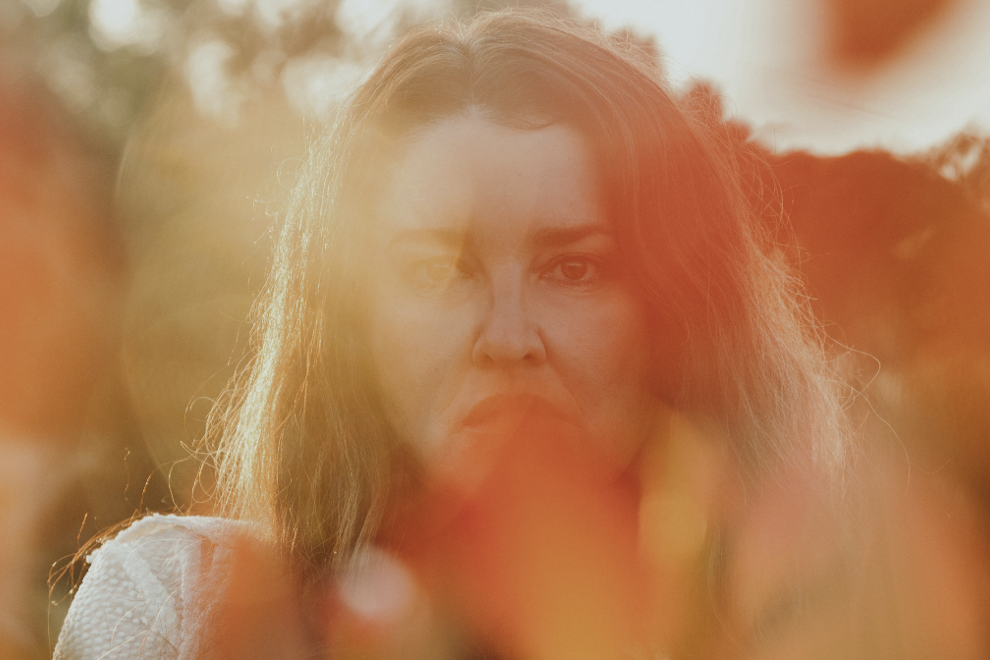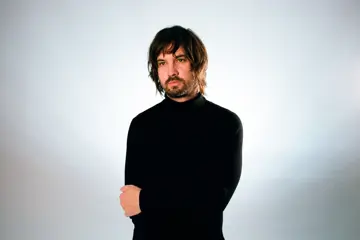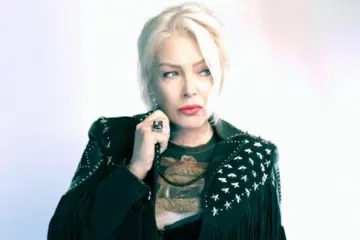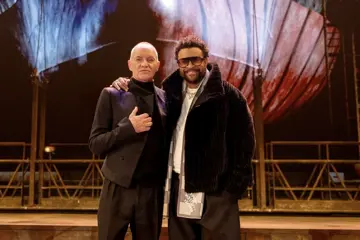Solace is a word that incites something visceral. It’s a soothing place, it’s a desirable feeling, it’s something we all want to achieve.
It seems that Avalon Kane has finally achieved it. The Avant-Garde electric artist based on Kaurna land is gearing up to release her third album, born out of a two-year collaboration with Stu Patterson of The Empty Threats. The album is, fittingly, titled Solace. It’s a transformative piece of work, ambient, gentle, textural, kaleidoscopic. One could almost call the album psychedelic - though that might be leading the listener slightly astray.
While speaking to Patterson and Kane just ahead of the album release, jokes are made that Solace would be the perfect soundtrack to a mushroom trip.
Kane finds this especially amusing, given that she doesn’t do drugs. People have reportedly asked her, Did you write that on shrooms? She laughs. “I’m like, no, but it’s cool that people respond that way. I think that’s great.”
Avalon Kane first came across The Empty Threats at the South Australian Music Awards a few years ago, and instantly wanted to work with Patterson.
“I think it was the K video. I saw Stu jumping around in it, and I was like - that’s the sound.”
What initially drew Patterson to the project?
“It’s something very different to what I normally do,” they say. “I really like doing different things because then I can exercise the different parts of my musical abilities. I get very bored if I just do one thing.”
The partnership has clearly been rewarding for the both of them.
“We really just came out of our shell since we started working together, and with Max [Hurrell] as well, the producer,” Patterson explains cheerfully.
The two complement each other well. “When I worked with Stu on tracks, I saw something else developing in my music that I could tap into, the more sort of rock grunge side merging with the electronics. So I thought there were definitely avenues I really wanted to explore from that. And I just started writing heaps of material.”
Don't miss a beat with our FREE daily newsletter
Kane continues, beaming with gratitude, “Stu definitely sees things in me that I don’t. I always thought I couldn’t sing. I’ve always been told that I was terrible. But I think I was just comparing myself to what’s in the mainstream. Like, I’m not a Taylor Swift, I’m not a Britney Spears.”
Patterson was crucial in leading her to have more faith in her own abilities. “Stu said, You can. It’s all about confidence. And I was never confident with my music.”
The beautiful thing about collaboration is that it lends itself to an environment of support and care.“When you’re a solo artist it’s hard because…” Jess trails off. Because there’s no one to lean on but yourself, it seems she wants to say. “Stu see[s] something that’s inside of me, and just draw[s] it out more than other people can.” Together, they feel “safe and comfortable” in their little musical unit.
Patterson adds, “That’s a really important thing about being creative, too. You have to feel safe and comfortable in your environment to be able to do your best work.”
With Solace, Avalon Kane and Stu Patterson have clearly been able to do some of their best work so far. The music is otherworldly, poignant.
“I only write music that has a feeling to it,” Kane says. “I won’t even use a sound if it doesn’t resonate with me.”
Where does she find inspiration to be able to make music like this?
“Just everywhere. I’m always feeling. I’m always thinking. I just have to go outside a lot of the time, and things will move me. I’m just a very emotional person,” she says. A “feather getting stuck in a weed” is enough to inspire and move her to create art.
Patterson clearly has a deep care for the experience and emotions that Kane has channeled into the music-making process. They explain that they felt an extra responsibility, given that the lyrics weren’t theirs, to give the emotions the weight they deserved. In order to properly portray the feelings of certain sounds, they experimented with more open pronunciation, which they had never done before, but found to be extremely artistically rewarding. It has certainly given the vocalisation a certain inviting nature.
Kane discusses using certain personal experiences as fodder for songwriting. She mentions the track If I Could, which was largely inspired by her son’s first break-up.
“I didn’t know how as a parent to take his pain away from him. It was really difficult seeing him like that.” She explains that the song is an ode to a mother’s love.
Has she shown it to him?
“Yeah, he hates it,” she laughs. “When he’s a bit older he’ll appreciate the reasons behind it…I couldn’t do anything, so the only thing I could do was just write. It was helpful for me, but not much for him. Hopefully one day he’ll appreciate it.”
Kane reflects on her musical roots, all the way back to when her parents suggested she learn to play the guitar as a quiet, introspective child. “I love the guitar. When I learnt it, it wasn't traditionally a girl's instrument, and I had to prove myself a little bit. And I was only allowed to play the acoustic, because it was more feminine. I wasn't allowed to play the electric. But the funny thing is, I don't ever really write with my guitar. I write with my synth, and that's something I developed on my own, which I'm probably more proud of because I did it all myself, I learned to play the piano and the synth and everything all by myself.” After a pause, she finally allows herself to acknowledge, “It's probably a big achievement.”
Solace will be available on all streaming platforms on November 22nd.
This piece of content has been assisted by the Australian Government through Music Australia and Creative Australia, its arts funding and advisory body

















